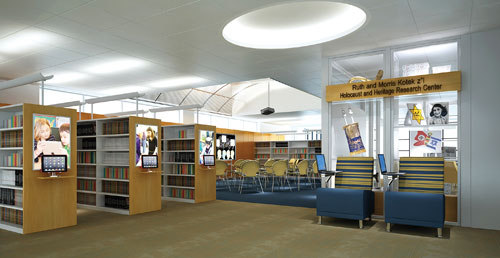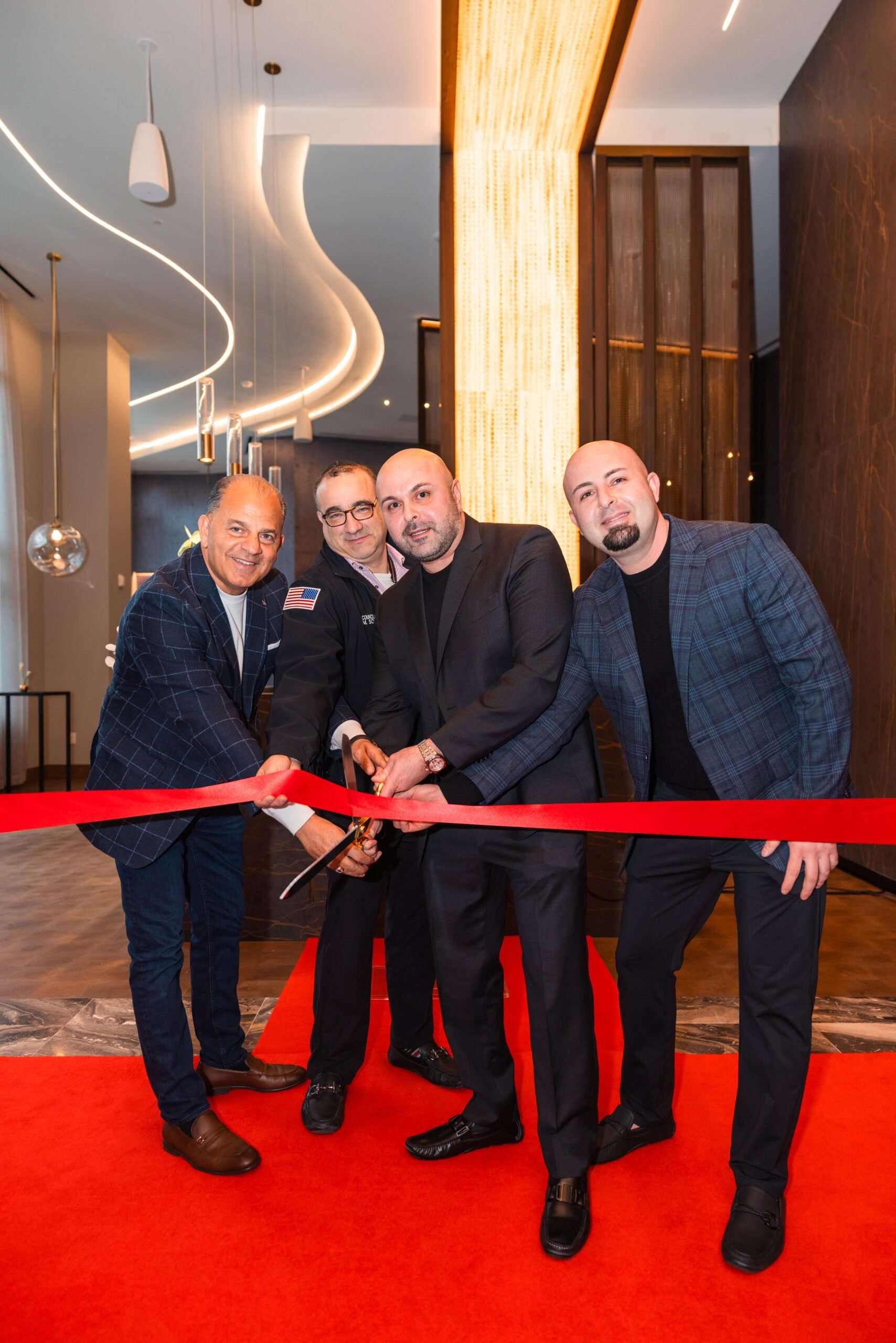.jpg)
Solomon Schechter Day School of Bergen County (SSDS) has announced the creation of the Ruth and Morris Kotek, z”l, Holocaust & Heritage Research Center, which underwrites Schechter’s current Holocaust programs and will fund the expansion of its Holocaust and Heritage curriculum. The first phase is expected to open in the fall of 2013.
The new Technology & Media Center is being constructed to facilitate study of the Holocaust through technology-based learning. The Center will house 20 iPads, Smart Boards, and will enable students to “plug-in” their personal devices to learn and collaborate in small-group settings.
Plans are to partner with documentary film non-profit organizations such as Citizen Film and Witness and Holocaust education programs in Israel and domestically. These include Yad Vashem; The U.S. Holocaust Museum in Washington, D.C.; The Museum of Jewish Heritage─ A Living Memorial to the Holocaust in New York City; and the iWitness Program of the University of Southern California Shoah Foundation. (iWitness uses web-based tools to teach students how to gather, compile, and edit testimony related to the Shoah.)
At the Center, through learning the art of digital storytelling to document Jewish heritage, students will research the history, individual stories, and broader impact of the Shoah. They will learn interviewing skills and video-editing. The documentaries they create will be housed in Schechter’s library of testimony. This Video Documentary Film Program will be part of the Middle School’s Holocaust and Heritage education program, and will be shared with other schools, including religious schools, public middle and high schools, and other day schools.
Solomon Schechter’s Holocaust and Jewish Heritage program is based on a philosophy and curriculum that have been developed to safeguard that students receive age-appropriate, meaningful instruction on the subject. Central to the program is student exposure to eye-witness accounts and object studies to gain a personal understanding of the Holocaust. The approach is not to only teach the history behind the Holocaust, but to expose children to individual stories; this enables them to make personal connections with the victims, survivors, and their families, as well as the future generations.











